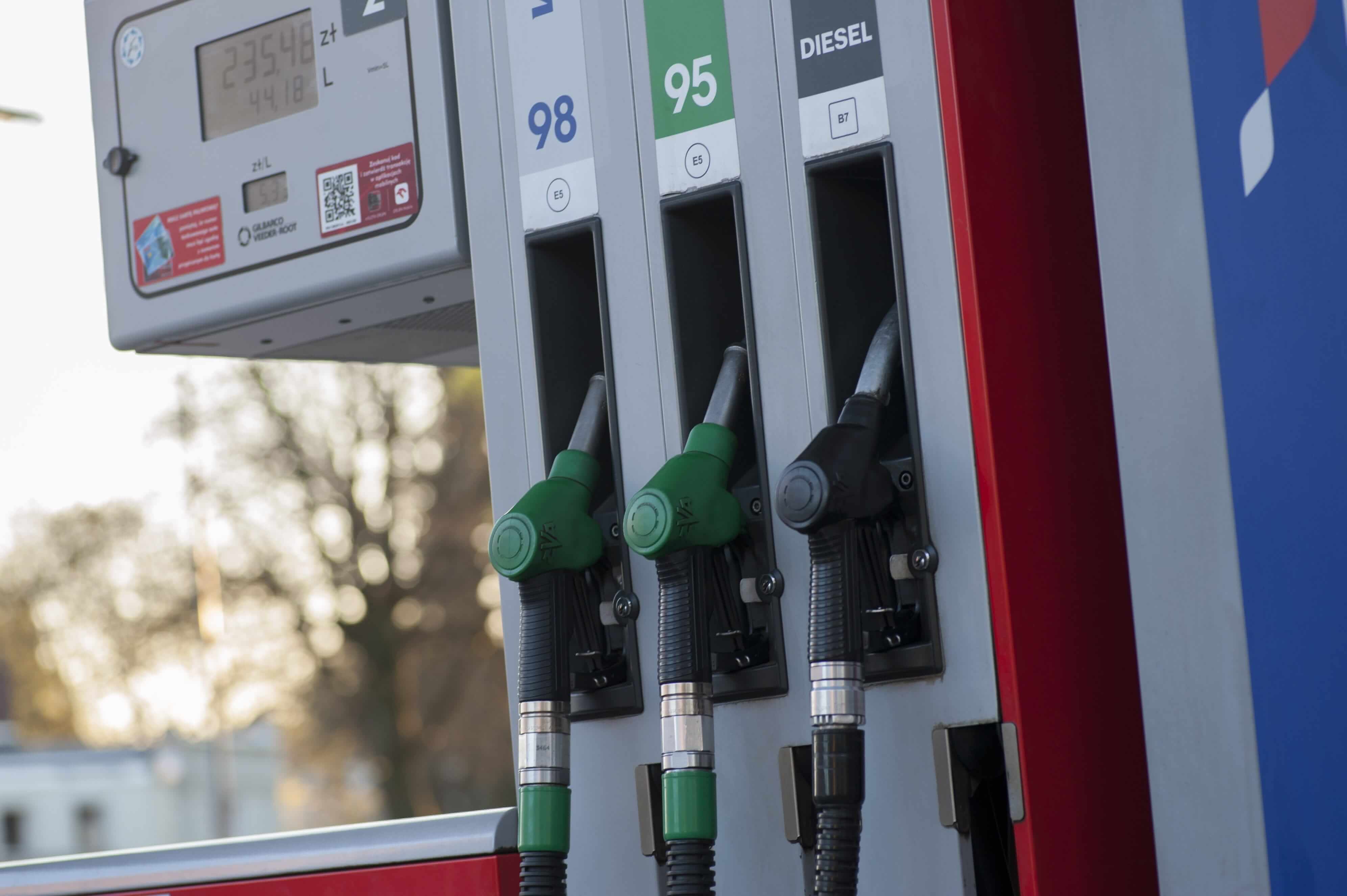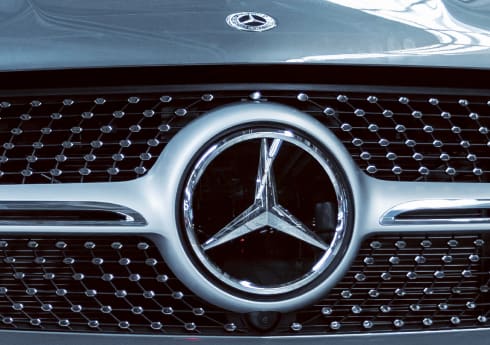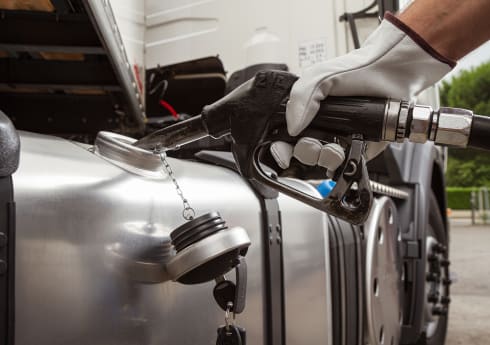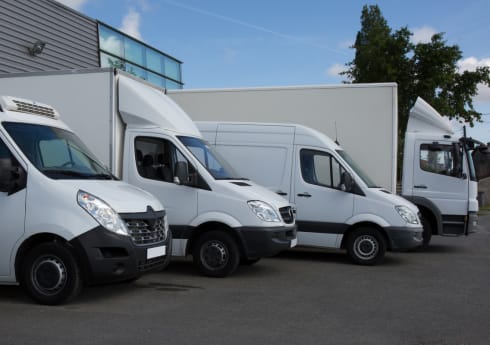Wrong Fuel in Your Car? Here’s How to Fix It
Putting the wrong fuel in one of your cars might seem like something that neither you nor any of your employees would ever do, but it’s actually reasonably common. It’s even claimed in numerous places online that it happens over 150,000 times each year in the UK (though this stat, attributed to the AA, is invariably presented without a direct citation).
If you suspect that there’s been a misfueling with one of your vehicles, you know there has, or you simply want to know more about the prospect so you can guard against it, then this article is for you. We’re going to run through how the wrong fuels get used, what the consequences are, how you can respond to it, and how you can guard against misfuelings. Let’s get to it.

How the wrong fuels get put into cars
There are three main reasons why a driver might select the wrong fuel when refuelling:
Firstly, they might be confused by labelling: new fuel labels have been rolled out this year due to a government initiative, and though the goal is to ultimately make things easier, it’s easy to see how someone who’s simply picked Unleaded for years (even decades) might be unsure when asked to choose between E5 and B7 and just choose the one they assume to be correct.
Secondly, they might drive multiple cars on a regular basis — or have recently started driving a new car — and have the wrong idea about the requirements of the car they’re trying to refuel. They might believe it to have a petrol engine when it actually has a diesel engine, for example. And yes, they should notice in time, but they might not.
Thirdly, they might simply make the basic mistake of picking up the wrong fuel nozzle without really thinking about it. If someone is in the middle of a lengthy journey, they might take every opportunity to relax between drives, leading them to zone out after stopping for fuel. While this shouldn’t happen, the reality is that we can all make very silly mistakes like that.
It’s less likely that someone will put diesel into a petrol engine because of the disparity in pump nozzle sizes: the petrol nozzle is small enough to go into the diesel filler neck, but it’s typically hard to fit a diesel nozzle into a petrol filler neck. Even so, it can happen in some cases.
Having fuel cards can save your business money, do your driver fuel expenses claims automatically and make it a 30-second job to reclaim your fuel VAT. As a free comparison site, iCompario can find you offers on cards from all the big oil companies or multi-brand cards, and deals with no minimum purchase or tie-in contracts.
The cost of putting the wrong fuel in your car
Now that we’ve looked at how misfuelling happens, we can consider the consequences. How bad can it be to briefly run your car on the wrong fuel? What can it cost you? Well, the answer to the first question is very bad, and the answer to the second is quite a lot.
Let’s first look at what happens when a driver puts petrol in a diesel car, because that’s by far the most common form of misfuelling for the reason we already noted. Here’s the problem: while diesel and petrol are derived from the same process, the former is a lubricant, while the latter is a solvent — meaning it reduces lubrication. When a diesel engine is filled with petrol and ignited, the petrol causes friction and damages components as it moves through the system.
If they try (knowingly or unknowingly) to run a diesel engine on petrol, it won’t go very far, and it’s entirely possible that the entire engine (and fuel system in general) will be damaged beyond repair. At the very least, you can expect to need major repairs — and they won’t be cheap.
Now, as for what happens when they put diesel in a petrol car (unlikely, but possible, as noted)… probably nothing at all, which is to say that the engine simply won’t start. Because diesel engines use compression ignition, it’s unlikely that diesel fuel will start in a petrol engine.
If it does start, the engine will run, but the performance won’t be good. Either way, it’s unlikely to cause long-term damage. That said, there will still be a cost involved: there’s the delayed journey, the wasted diesel fuel, and the likely need to pay someone to drain the fuel tank.
The symptoms of a misfuelled car
How can you tell if the wrong fuel is in your car? If you have diesel in a petrol engine, it either won’t start or will have trouble starting, and with a healthy fuel gauge it should be clear what’s happened. In the event that it starts running, the engine may periodically judder or display other deviations from standard performance.
And if you have petrol in a diesel engine, you can expect significantly-impacted performance, with the effects getting worse the longer it runs. At some point, the engine will likely fail altogether, though this does depend on its age, design, and tolerance levels.
What to do if your car has been misfuelled
If it becomes apparent while in use that your car has been misfuelled, the driver should stop as promptly as they can safely manage, turn off the engine, and contact your breakdown service provider of choice. If they need to move the car before help arrives, they can put it in neutral, leave the engine off and push it without causing any further damage.
If the misfuelling is discovered before leaving the fuel station, then the driver should observe much the same protocol. Because the car shouldn’t be left at the pump, it should be pushed in neutral to a safe space to await assistance — the fuel station attendant may be able to help.
Once help arrives, the engine will need to be drained, removing all the wrong fuel (now contaminated and not fit for use in any motor engine). A typical drainage process will flush out the wrong fuel using clean fuel of the right kind, then leave behind enough of the right fuel for the driver to get the car to a pump. The contaminated fuel will then be recycled, or used to fuel non-motoring engines that can tolerate the contamination.
How to prevent misfuelling
Because it’s costly to deal with a car being filled with the wrong fuel, the best thing you can do is look for ways to prevent it from happening. Here are some core tips for making it less likely:
- Train your drivers to be vigilant. Every driver you employ needs to know both the old and the new fuel labelling systems, how to tell whether the car they’re driving takes petrol or diesel, and how to start alert while refuelling. Investing in training and monitoring is the best thing you can do here. Bad drivers cause huge problems.
- Install nozzle limiters. If you use diesel cars, you can install limiters in the filter necks that prevent the smaller petrol nozzles from fitting. This isn’t 100% effective, of course, since the size mismatch doesn’t totally prevent people from jamming diesel nozzles into petrol filter necks — but it should prevent most basic slip-ups.
- Don’t mix engine types in your fleet. By ensuring that every car in your fleet uses diesel, for instance, you can make it far less likely that a driver will mistakenly fill up with petrol. The more you mix engine types, the more confusion it will cause.
- Use limited fuel cards. Certain fuel cards are limited to either diesel or petrol. If you supply each driver with a diesel-specific card, it will serve to remind them of which type of fuel they need to fill their engine.
While it is technically possible to get misfuelling cover as part of your motoring insurance, it isn’t very common, so it might not be an option for you. If it is, then you could use it to cover the cost of draining an incorrectly-filled tank, and even the cost of the wasted fuel — but if you take action to minimise the chance of misfuellings happening, you shouldn’t need to worry about it.
Having fuel cards can save your business money, do your driver fuel expenses claims automatically and make it a 30-second job to reclaim your fuel VAT. As a free comparison site, iCompario can find you offers on cards from all the big oil companies or multi-brand cards, and deals with no minimum purchase or tie-in contracts.



